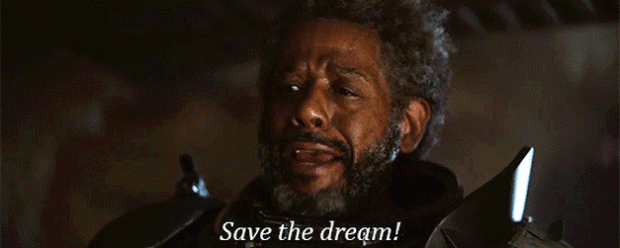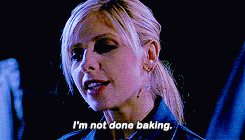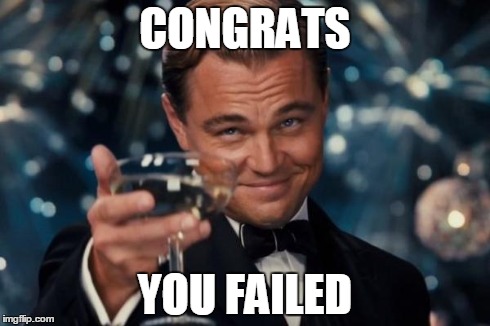Writing a novel is a taxing journey that can require years of dedication and work to bring the story from concept to publication. As my latest project, War Stories, looms on the horizon, my mind once again becomes a pitfall baited with reveries of success. Will this be “the one” to change everything and elevate me (and my family) to new heights? Every author dreams of success and peer recognition, but behind that dream is a brutal reality inherent to the profession: failure. I have failed in the past and will do so again. When I chose to pursue a career in writing, I accepted that truth. Insecurity may be in the job description, but to persevere despite that is what shapes a writer.
Whether it comes in the form of personal creative disappointment, financial burden, or an imploding career, failure is part of a writer’s existence. To survive, we have to identify failure––embrace it, even––but never accept it as absolute.
Creative Disappointment
Writers often judge their own material more harshly than their worst critic. I’ve poured my heart and soul into dozens of projects, and they don’t always come out as intended. My years in screenwriting taught me that not every brilliant concept results in a strong execution. Sometimes ideas have to be abandoned. Sometimes the negative reactions of others are so debilitating that the idea is crushed altogether. But being creatively discouraged is actually the easiest form of “failure” to overcome because of one simple fact: no written word is ever a wasted effort.
Each sentence written improves your craft. Each new idea is an experience that sheds light on personal strengths and weaknesses. It is part of a writer’s job to redirect those new truths to further fuel their passion. As long as we listen to ourselves over our critics, the mind of a writer is one of infinite universes and possibilities. The only limits on creativity are the walls erected in our own minds, walls that can be ripped down by that passion to tell stories.
But passion, like all things, is subject to the real world.
Financial Burden
Money issues have doomed many would-be scribes. The world is an unforgiving place that doesn’t care if you have the time or money to pursue your craft. The amount of effort it takes to write a book and get paid (if you ever do) would seem crazy to most people in other industries. Writing is not a life of steady paychecks but one of constant uncertainty, which is only compounded when you have a family or people depending on you. Balancing writing with a full-time job is an exhausting existence that most prospective writers have to endure. I certainly put in my years, but the question remains: once able to write full-time, are we making the most of the opportunity?
If you’re lucky enough to have someone in your life that supports your writing efforts, then every day becomes a blessing that you have to earn. When others make sacrifices for your art, you want to see their support returned in spades. You want them to know that their belief in you is not wasted. No one becomes a writer to earn money––there’s far easier ways to do that––but neither do we want to toil away with nothing to show for it. Without being able to contribute. And if you’ve found a modicum of financial success, it becomes that much harder if your success dwindles.
The closer we come to realizing the dream, the more brutal our insecurities become. A plague of “what if…?” doubts begins to infect our thoughts. What if I had chosen a different path? What if this project doesn’t sell and I’m back at square one? What if I just quit? Once that thought creeps into your head, it can threaten to upend everything you’ve spent a career building.
Career Implosion
Every writer––every writer, I don’t care who you are––has had a moment of self-reflection where they questioned their sanity and commitment. When a writer is no longer creatively fulfilled, doubts their talents, and faces financial ruin, a doomsday scenario emerges where the only way out seems to be total abandonment of what we love. The greatest fear for myself and many other writers is that we will simply be one of the masses who “don’t make it,” for whatever reason. How many years do we allow ourselves to pursue this? How many chances do we get before having to find a “real” job? Is that even possible, after having spent so long driving in one direction?
A colleague rightfully pointed out that being a writer is not a meritocracy. Talent opens the door, and hard work keeps it open…but sometimes it doesn’t work out. If you’re like me and have zero talents or skills beyond writing, that is a fucking bleak future. The thought that the career I’ve dedicated my life to might end up being all for naught…well, it’s enough to drive anyone mad. With so many ways to fail yourself and others, how can any writer hold onto the bright-eyed optimism of our youth?
By writing. Again and again. Wear the scars of your failures with pride, because each one is a badge of personal bravery. We dare to try when so many other people will never have the courage to put a single word on the page.
What does failure mean to a writer? Failure is giving up. Giving up on ourselves. Giving up on believing in our talents. Giving up on all the characters and stories we’ve yet to tell. I may not have (yet) found the success I’m seeking, but as long as I push on, I’ll never be a failure. Until then, I’m a work in progress.
To quote a famous slayer, “I’m cookies.” And I’m not done baking.

Exactly! Well put. The word “success” doesn’t really matter either because no matter how “successful” you become, you are still working for the next job. I’ve seen this first hand. It’s always a process, always a struggle. Real success is pushing forward in spite of the failures.
And I know you appreciate the Buffy reference 🙂
It made me do the Snoopy Dance!
So poignant and well written. You bared your soul
“No one becomes a writer to earn money — there’s far easier ways to do that — but neither do we want to toil away with nothing to show for it.”
That’s a sentiment that isn’t expressed often enough, especially in today’s Hollywood, where screenwriters are often compelled to work for free — to take either a bad deal or no deal, a practice that absolutely needs to be reformed. (It won’t be… but it should be.)
Yes, the idea of “paying your dues” by doing free work is antiquated and something the WGA needs to regulate/oversee more closely. Unfortunately, if you’re not in the guild yet, you have little recourse.